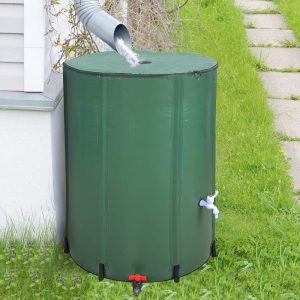
In any survival scenario, the three most critical items are shelter, food, and water—with water being the most essential. This guide will explain why you should store water for emergencies and how to store it properly.

Various emergencies can disrupt your water supply, making stored water invaluable. Consider the following scenarios:
The CDC recommends storing at least one gallon of water per person per day for a minimum of three days, which includes drinking and sanitation needs. However, a three-day supply might not be enough. It’s wise to aim for at least a two-week supply. For households with pregnant women, ill individuals, or those in hot climates, you should store even more.
To help you calculate your water needs, download our simple cheat sheet. It’s designed to help you figure out how much water you need to store for a three-day emergency supply. If you want a larger supply, multiply your three-day number accordingly. For example, for a one-month supply, multiply your three-day amount by ten.
Bottled Water: Purchasing cases of bottled water is convenient for short-term needs. Rotate your supply regularly to keep it fresh.
Large Containers: For long-term storage, consider options like:
Ensure these containers are food-safe and have the appropriate markings.
Lower-Cost Containers: You can use cleaned 2-liter soda bottles, plastic juice bottles, or canning jars. Avoid stacking glass containers to prevent breakage, and clean all containers thoroughly before use.
One-Gallon and Five-Gallon Jugs: Milk jugs and blue water cooler jugs are not recommended for long-term storage as they can split and leak.
Water doesn’t spoil, but it can become stale. Rotate your stored water every six months to maintain freshness, marking the date on each container. Use stale water for non-drinking purposes like watering plants or animals.
Using a high-quality water filter like the Big Berkey can provide clean drinking water daily. It removes contaminants, viruses, bacteria, heavy metals, and organic impurities, ensuring safe drinking water.
Storing water is essential for preparedness. By following these guidelines, you can ensure that you and your family have access to safe, clean water in any emergency. For more tips visit Prep2Survive.
Here’s how to Calculate how much water to store!
The average person should drink two-thirds of their weight in ounces of water every day.
To figure out how much water you should drink daily, multiply your weight by .67.
Write that number here: _____
Now find the amount each person in your household should drink daily in the same way.
Add those numbers to find the total number of ounces of water to store for each day.
____ + ____ + ____ + ____ + ____ + ____ = ____
Total ounces of water needed each day: ____
Multiply this number by 3 days: ____ x 3 = ____
Divide by 128 ounces to find the number of gallons you should store: ____ gallons
You’ll need additional water for personal hygiene, washing dishes and clothing, and for
cooking.
We suggest adding an additional gallon for each person per day.
Your goal: store ____ gallons for a three-day emergency supply of water.